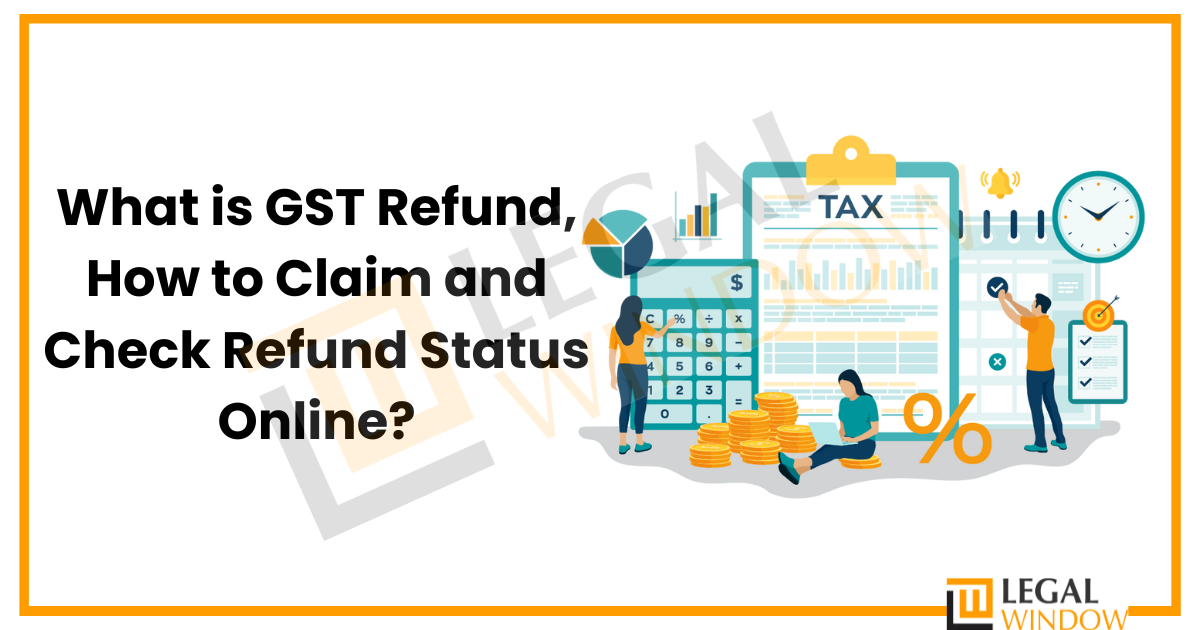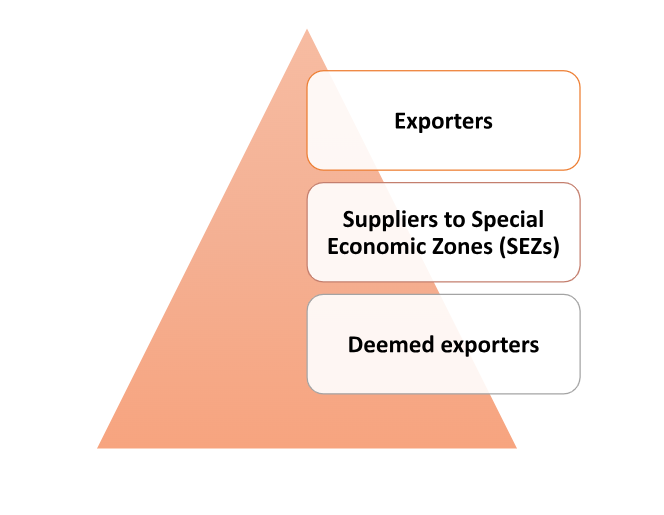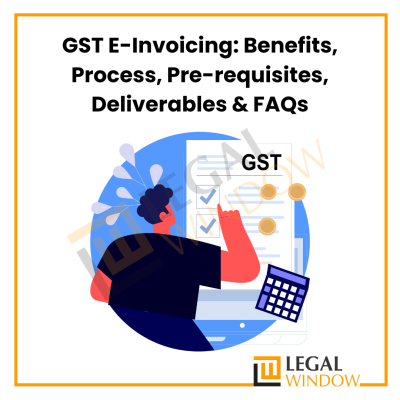
Understanding the complexity of the GST system is critical for both businesses and people. The GST refund is a system designed to reduce the burden of excess tax paid. Getting a GST refund for your business is crucial, especially when you’re dealing with exports, dealing with inverted duty structures, or trying to get back the tax credits you’ve accrued. We simplify the process here, leading you through the important aspects of how to Claim GST Refund and allowing you to easily check your refund status online. This article will explain the procedures involved in the Online GST refund process, as well as how to claim and track the status of GST refunds online.
Table of Content |
Goods and Services Tax (GST) in India
The Goods and Services Tax (GST) in India, came into effect in 2017, is an indirect tax collected on the sale of goods and services. The goal of GST is to simplify the tax process and create a unified national market by replacing multiple taxes. It has different tax rates for different things, like 5%, 12%, 18%, and 28%. This system has helped businesses and people by making taxes easier and reducing the tax burden. It has also made it easier for businesses to follow the rules and be more efficient. Overall, GST has helped the economy by making taxes simpler and making sure more people follow the rules.
What is GST Refund?
A GST refund is a return of the Goods and Services Tax (GST) paid on purchases made by a company or an individual. It usually applies when the GST paid on inputs exceeds the GST liability on output supplies. Businesses and individuals can claim a GST refund by submitting the required papers and accompanying documentation to the tax authorities. This procedure guarantees that the GST burden does not become an additional cost to the firm or individual, while also promoting the seamless flow of credit throughout the GST system.
Refunds for excess tax paid, exports of goods or services, inverted tax structures, accumulation of input tax credits as a result of inverted tax structures, and presumed exports are among the various types of refunds under the GST. Refunds may also be given for taxes spent on inputs used in the production of items intended for export, as well as taxes paid on goods and services provided to SEZ units or developers. For each sort of refund to be processed successfully, there are particular requirements and steps that must be followed.
How to Claim GST Refund and who can claim?
How to claim a GST refund is a simple process. Follow these general steps to obtain a GST refund in India:
- Enter valid credentials into the GST portal.
- Go to the ‘Services’ menu and click on ‘Refunds.’
- Select the applicable refund type (exports, inverted duty structure, etc.).
- Fill out the needed form accurately, including the time period for which the refund is being sought.
- Attach any supporting documentation, such as invoices, export evidence, bank realisation certificates, and applicable declarations.
- Verify the information and submit the refund request.
- Track the status of the refund application on the GST portal on a regular basis after submission.
- The reimbursement amount will be credited to the applicant’s bank account once approved.
So, the next important question is who can claim refund in GST. The following entities are eligible for GST refunds under the GST system:

- Exporters: Businesses that export goods or services can seek a GST refund on taxes paid on inputs used in the manufacture of export goods or services.
- Suppliers to Special Economic Zones (SEZs): Businesses who supply products or services to SEZs can claim a GST refund for the taxes paid on these deliveries.
- Deemed exporters: Entities that supply products deemed to be exports are eligible for a GST return on the tax paid on such shipments.
To seek a refund under the GST system, these organizations must follow the specified procedure, which includes filing the necessary forms and presenting supporting documentation.
Online Process for Checking GST Refund Status
Follow these procedures to verify the GST refund status and track the progress of your GST refund application in India:
- Go to the GST official website (https://www.gst.gov.in).
- Use your credentials to access your GST account.
- After login in, go to the ‘Services’ menu and then choose ‘Refunds.’
- Select ‘Track Refund Status.’
- You’ll be taken to the ‘Track Application Status’ page.
- Enter the necessary information, such as the Application Reference Number (ARN) or GSTIN (Goods and Services Taxpayer Identification Number).
- Choose the fiscal year for which you asked for the refund.
- For verification, enter the Captcha code.
- Select the ‘Search’ option.
The status of your GST refund application will be displayed on the portal. One of the following statuses will be displayed: “Acknowledged,” “Approved,” “Pending,” “Rejected,” or “Processed.”
The “Received” status indicates that we are reviewing your refund request.
Your refund is being processed if it is in “Approved” status.
Your request is awaiting action if it is in “Pending” state.
The “Rejected” status indicates that your claim has been turned down, possibly for a reason.
“Processed” indicates that your bank has received the full amount of your return.
Common mistakes to avoid when claiming a GST refund
It is very important to be aware of common mistakes that can result in rejections or delays when filing a claim for a refund of GST (goods and services tax). The following common errors should be avoided when filing a claim for a GST refund:
Incomplete or inaccurate information: Verify that all the data you enter in the application for a GST refund is true and comprehensive. Errors or omissions of information may cause delays or rejections.
Inaccurate GST identification number: Verify the recipient’s and supplier’s GST identification numbers (GSTINs). Erroneous GSTINs may cause problems during the verification procedure.
GST laws and regulations not being followed: Verify that the GST refund claim conforms with all applicable GST rules and regulations. The reimbursement application may be rejected for any non-compliance.
Absence of appropriate documentation: To support your claim for a GST refund, keep accurate records, such as invoices, receipts, and other pertinent paperwork. Insufficient or absent supporting documents may result in the claim being denied.
Late filing of the refund claim: Make sure you send in your GST refund claim by the deadline. If a claim is submitted beyond the deadline, there may be penalties or rejection.
Inaccurate GST refund amount computation: Verify again that the GST refund amount is precisely calculated and compliant with the GST laws. Errors in computation may result in rejections or delays.
Non-compliance with GST refund procedures: Become knowledgeable about the GST refund processes and make sure you adhere to them. Refund claims may be delayed or denied if the proper processes are not followed.
Relevant information not disclosed: Make sure you disclose all pertinent data pertaining to your application for a GST refund. Withholding important information may cause delays or rejections.
Conclusion
In summary, for businesses navigating the tax landscape, it is essential to grasp the basics of GST refunds. In order to successfully claim a GST refund, one must pay close attention to detail, follow instructions, and provide accurate evidence. Things now move more quickly and it’s simpler to check the status of your refund using internet. Your firm needs to abide by the GST regulations in order to be stable and function properly. Make sure all of your information is correct and submit everything on time. In this manner, processing your return will be easy and compliant with GST regulations.
CS Urvashi Jain is an associate member of the Institute of Company Secretaries of India. Her expertise, inter-alia, is in regulatory approvals, licenses, registrations for any organization set up in India. She posse’s good exposure to compliance management system, legal due diligence, drafting and vetting of various legal agreements. She has good command in drafting manuals, blogs, guides, interpretations and providing opinions on the different core areas of companies act, intellectual properties and taxation.
Categories
- Agreement Drafting (23)
- Annual Compliance (11)
- Change in Business (36)
- Company Law (148)
- Compliance (90)
- Digital Banking (3)
- Drug License (3)
- FEMA (17)
- Finance Company (42)
- Foreign Taxation (6)
- FSSAI License/Registration (14)
- GST (120)
- Hallmark Registration (1)
- Income Tax (202)
- Latest News (34)
- Miscellaneous (165)
- NBFC Registration (8)
- NGO (14)
- SEBI Registration (6)
- Section 8 Company (7)
- Start and manage a business (21)
- Startup/ Registration (130)
- Trademark Registration/IPR (40)
Recent Posts
About us
LegalWindow.in is a professional technology driven platform of multidisciplined experts like CA/CS/Lawyers spanning with an aim to provide concrete solution to individuals, start-ups and other business organisation by maximising their growth at an affordable cost.








